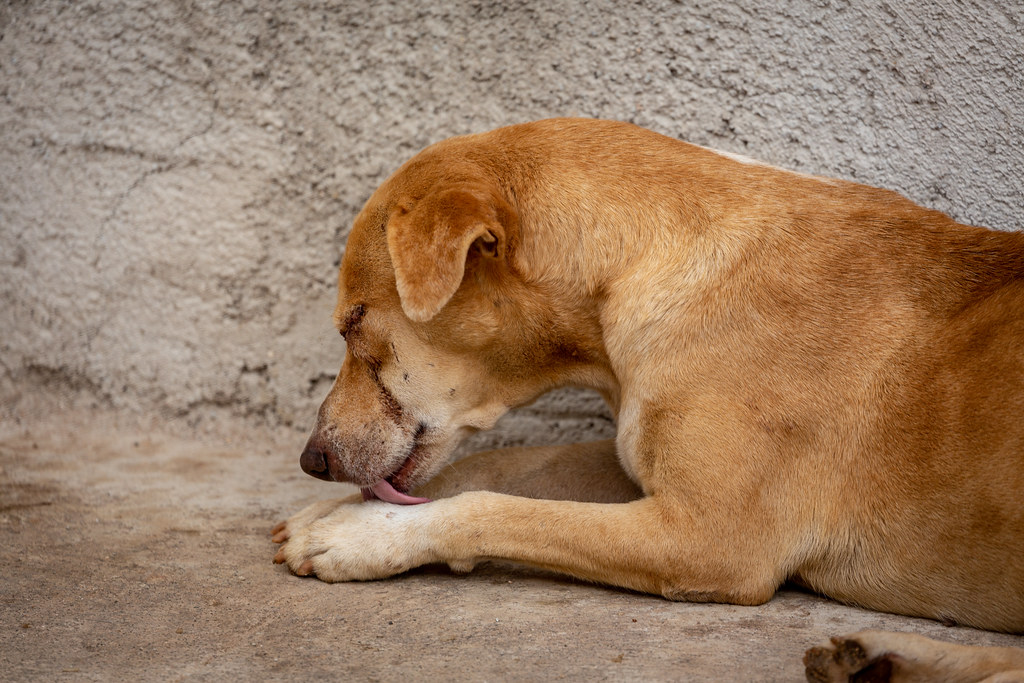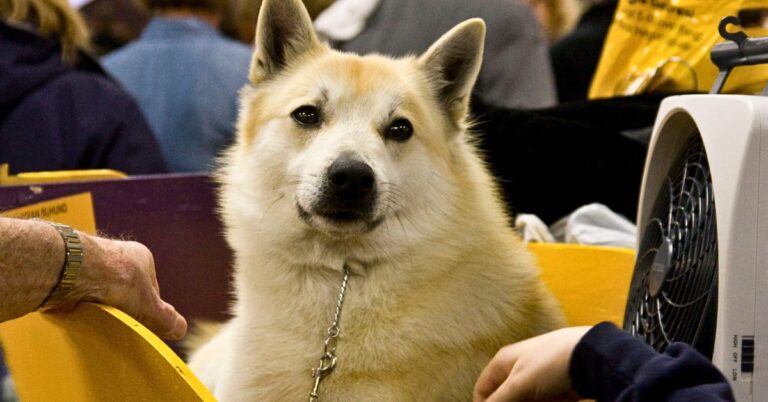15 Signs of Illness in Dogs Most Owners Overlook

Dogs are known for being stoic and, at times, even secretive about their discomfort. Many health issues can go unnoticed if owners aren’t aware of subtle changes that indicate something’s wrong. Unfortunately, by the time symptoms become apparent, the underlying issue may have already progressed. Here are 15 signs of illness in dogs that even attentive owners often miss.
Excessive Licking

Licking is a common way dogs soothe discomfort. But if your dog is focusing their licking on one particular area, like a paw, joint, or their stomach, it could be a sign of pain, skin irritation, or an underlying issue like arthritis or digestive distress. Even licking the air repeatedly can be a sign of nausea.
Changes in Sleep Patterns

Dogs sleep a lot, but noticeable changes in their sleep routine can be an early indicator of health issues. If your dog is sleeping far more than usual, struggling to get comfortable, or becoming restless at night, it may signal pain, discomfort, or even a mood change due to anxiety or depression. Sudden insomnia or difficulty lying down comfortably can also be signs of arthritis, joint issues, or digestive pain.
Unusual Odors
We often attribute “doggy” smells to normal canine behavior, but there’s a difference between standard pet odor and unusual smells that indicate illness. Foul-smelling breath can be more than just a need for dental care—it can signal kidney disease, diabetes, or liver problems. Ear infections, skin infections, and anal gland issues can also create unpleasant smells.
Loss of Interest in Toys or Activities
A decline in activity or playfulness is easy to dismiss as aging, but it can also be a sign of physical discomfort. Arthritis, joint pain, and other chronic issues can make it uncomfortable for dogs to engage in the activities they once loved. If your dog suddenly shows disinterest in toys, games, or daily walks, it’s essential to assess whether they’re experiencing pain or fatigue.
Sudden Weight Change

Weight gain or loss without any change in diet can be a signal that something is wrong. Sudden weight loss may indicate issues like diabetes, thyroid disease, or even cancer. On the other hand, rapid weight gain can be associated with hormonal imbalances, such as hypothyroidism. Monitor your dog’s weight closely and look for signs of bloating or swelling in the abdomen, as this can indicate more severe health conditions that need immediate attention.
Hiding or Seeking Extra Attention

Behavior changes like hiding or becoming excessively clingy are sometimes indicators of distress in dogs. Some dogs will isolate themselves when they’re in pain, while others will seek more comfort from their owners. If your typically independent dog suddenly follows you everywhere, or if your usually social pup starts hiding under the bed, it’s worth considering if they’re feeling unwell, anxious, or in pain.
Frequent Head Shaking or Scratching

Dogs might shake their heads or scratch occasionally, but frequent head shaking or scratching around the ears often points to ear infections, mites, or allergies. Head shaking can also cause ear hematomas, where blood vessels in the ear flap rupture due to excessive shaking. Ignoring these symptoms could lead to chronic ear issues, so it’s best to have your vet examine the ears for any sign of infection or inflammation.
Increased Thirst or Urination

Drinking more water than usual or needing to urinate frequently can be signs of underlying health issues, such as diabetes, kidney disease, or Cushing’s disease. While hot weather or exercise can increase a dog’s water intake, a persistent increase could be a red flag. Monitor their drinking and urination habits, and if you notice a significant change, schedule a vet check-up to rule out these metabolic disorders.
Changes in Bark or Vocalization

If your dog’s bark sounds different, it may indicate an issue with their throat, respiratory system, or even pain. A hoarse bark could suggest laryngitis or respiratory infections, while an increased or more frequent barking could be a sign ofanxiety or discomfort. Pay attention if your dog’s vocalizations seem “off,” as these changes are easy to overlook but may signify underlying health problems.
Persistent Panting

Dogs pant to cool down, but if your dog is panting heavily or frequently, especially at rest, it could be a sign of pain, anxiety, or heart or respiratory issues. Panting is a subtle way dogs express discomfort. If your dog is panting more than usual or appears short of breath, especially in non-stressful situations, it’s a good idea to consult your vet.
Dry or Crusty Nose

While a warm or dry nose isn’t always cause for concern, a consistently dry, cracked, or crusty nose could indicate dehydration, fever, or an autoimmune condition. Look for accompanying symptoms like lethargy, appetite loss, or changes in behavior, as these can provide clues about the severity of the issue. Sometimes, chronic dry nose can also be due to environmental factors or allergies.
Gastrointestinal Issues

Occasional vomiting or diarrhea can happen, but frequent or persistent issues with digestion are a cause for concern. Repeated vomiting, chronic diarrhea, or noticeable bloating could be signs of food allergies, parasites, or more seriousconditions like inflammatory bowel disease. If these symptoms last longer than a day or recur often, it’s best to consult a vet to prevent dehydration and address any underlying issues.
Changes in Posture or Gait

Limping, stiffness, or a change in how your dog walks can indicate pain or discomfort, often from arthritis, joint issues, or muscle injuries. Dogs may compensate by altering their posture or gait to avoid putting weight on a sore area, but these changes can worsen over time if untreated. If you notice your dog is reluctant to climb stairs, jump, or engage in normalmovement, it’s time to investigate further.
Eye Changes

Cloudy eyes, redness, discharge, or excessive tearing can be symptoms of infections, allergies, or age-related conditions. Eye problems can progress quickly and potentially lead to vision loss if left untreated. It’s easy to dismiss mild tearing or discharge, but keeping an eye on changes will help catch issues before they worsen.
Frequent Coughing or Sneezing

Occasional coughs or sneezes aren’t unusual, but if your dog is coughing or sneezing frequently, it could be a sign of respiratory problems, kennel cough, or even heart disease. Ongoing coughing, in particular, is often a symptom of cardiac or respiratory issues that require attention. If your dog seems to have trouble breathing or coughs regularly, reach out to your vet.





